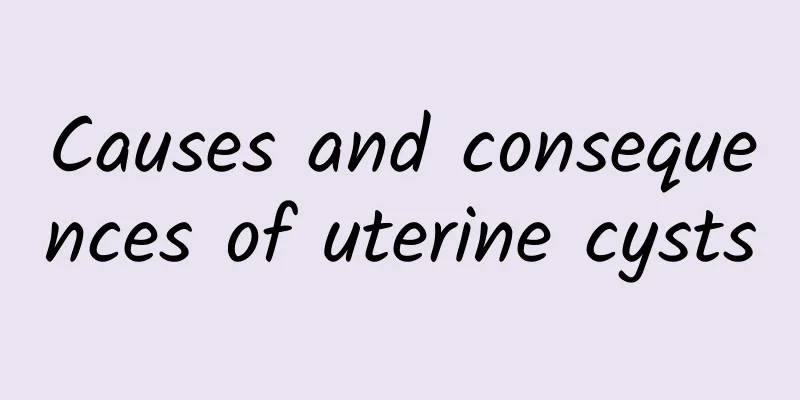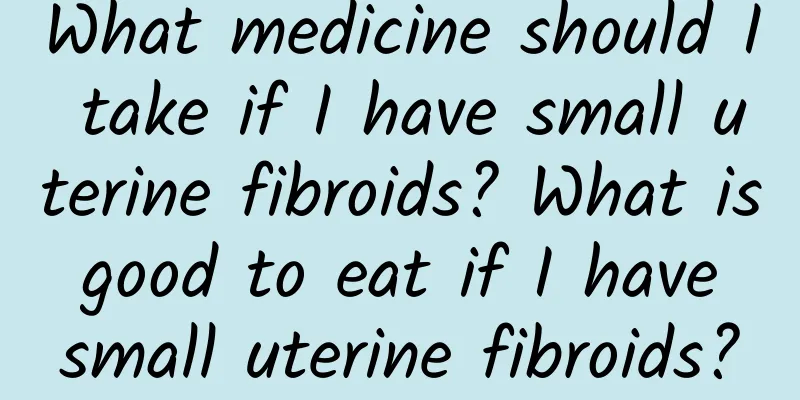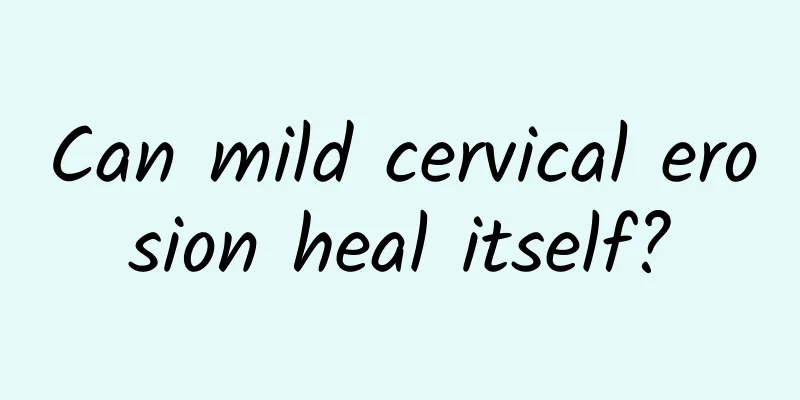Causes and consequences of uterine cysts

|
The main causes of uterine cysts include genetic factors, abnormal hormone levels, chronic inflammation, and living environment. The consequences may lead to menstrual abnormalities, infertility, and even malignant changes. It is particularly important to identify the causes early and take targeted treatment measures. 1. Influence of genetic factors: The formation of uterine cysts may be related to genetics. If there are patients with similar gynecological diseases in the family, the risk of the disease may increase. Genetic genes may affect hormone regulation, cell division and other processes, leading to the formation of cysts. For women with a family history of the disease, regular check-ups and attention to physical changes should be paid to timely detection. 2. Influence of environment and living habits: External environmental pollution, excessive stress, unhealthy diet and other factors may cause uterine cysts. Long-term intake of foods containing hormones or exposure to chemical pollutants may affect the hormone balance in the body. Irregular work and rest, long periods of sitting, lack of exercise and other living habits can also reduce the body's immunity and increase the chance of cysts. It is recommended to adjust your lifestyle, maintain a healthy diet, reduce the intake of foods high in hormones, increase exercise, and improve your body's immunity. 3. Abnormal hormone levels and personal factors: Long-term high estrogen levels in the body are one of the important causes of uterine cysts, which may be related to diseases such as polycystic ovary syndrome and endocrine disorders. Endometriosis or degenerative lesions may also contribute to the formation of cysts. Abnormal hormone levels are often accompanied by symptoms such as abnormal menstruation and abdominal pain. If similar problems are found, you should see a doctor as soon as possible and confirm the diagnosis through hormone tests and imaging methods. 4. The role of chronic inflammation: Chronic inflammation, such as pelvic inflammatory disease and endometritis, can easily cause local tissue necrosis or fluid accumulation, forming cysts. Long-term untreated inflammation may damage uterine tissue and promote the further development of cysts. Eliminating the interference of chronic inflammation can be done through antibiotic treatment, traditional Chinese medicine conditioning, etc., which must be completed under the guidance of a specialist. 5. Possible consequences of uterine cysts: If the cyst is small and asymptomatic, most of them do not require special treatment but need regular observation; larger cysts may compress surrounding organs, causing symptoms such as frequent urination, constipation, lower abdominal pain, and even infertility; if the cyst is accompanied by infection or malignant transformation, emergency treatment or surgical removal is required. Common treatments include drugs to regulate hormone levels such as Diane-35, local injection ablation therapy, or laparoscopic surgery. In more serious cases, hysterectomy may be required. Uterine cysts require appropriate intervention measures based on individual causes and specific symptoms. Women are also required to maintain a healthy lifestyle, undergo regular gynecological examinations, and improve their long-term health. If you suspect you have a uterine cyst or find related symptoms, please go to the hospital in time to avoid missing the best time for treatment. |
<<: Is uterine cyst serious? What are the dangers?
>>: What can't you eat if you have adenomyosis?
Recommend
Tell everyone what are the dangers of adnexitis?
The harm of adnexitis to women cannot be ignored,...
What is the cause of congenital absence of vagina?
How does congenital absence of vagina occur? This...
What are the symptoms of endometrial tuberculosis during menstruation?
According to clinical data, in recent years, the ...
A brief analysis of the postoperative care precautions for ectopic pregnancy surgery
For patients who choose ectopic pregnancy surgery...
How to care for chronic pelvic peritonitis
There are many types of pelvic peritonitis. Women...
What causes pelvic effusion?
Pelvic effusion may be caused by physiological fa...
How to regulate the postoperative diet of patients with cervical erosion? Remember 5 points for women's postoperative diet
In life, after cervical erosion patients undergo ...
Cervical redness and cervical hypertrophy
Cervical redness and cervical hypertrophy can be ...
How is adnexitis diagnosed?
Adnexitis is a disease suffered by most women in ...
Key points for the care of uterine fibroids: hormone supplementation for menopausal uterine fibroids
How should we take care of uterine fibroids in ou...
When should surgery be performed on endometrial fibroids? How big should endometrial fibroids be before surgery is needed?
Endometrial fibroids are one of the most common b...
How to prevent cervical erosion
Cervical erosion is one of the most common diseas...
How to prevent cervicitis
Cervicitis is one of the common gynecological dis...
Is pelvic effusion 27mm liquid dark area serious?
Pelvic effusion with a 27mm dark area is generall...
Can drinking ginger tea help you lose weight? Female Chinese Medicine Practitioner: Don’t drink it wrong again!
It is widely rumored on the Internet: "Ginge...









